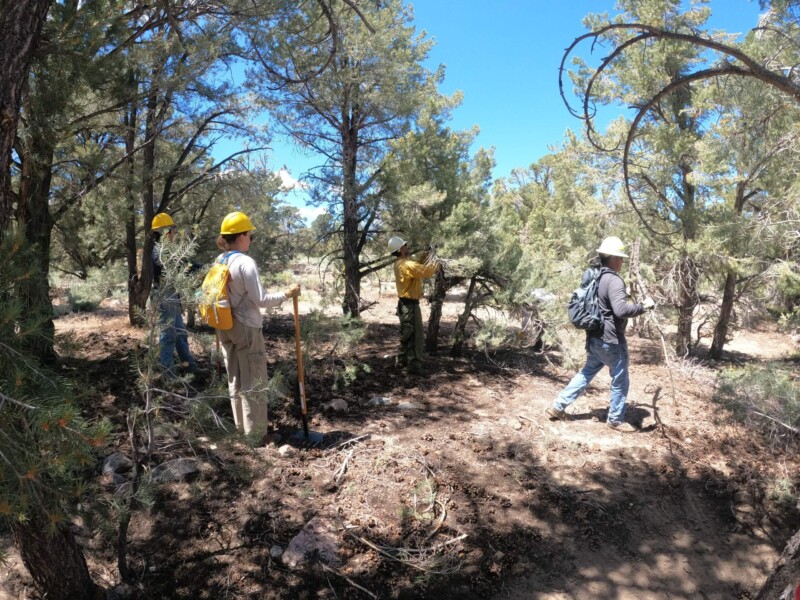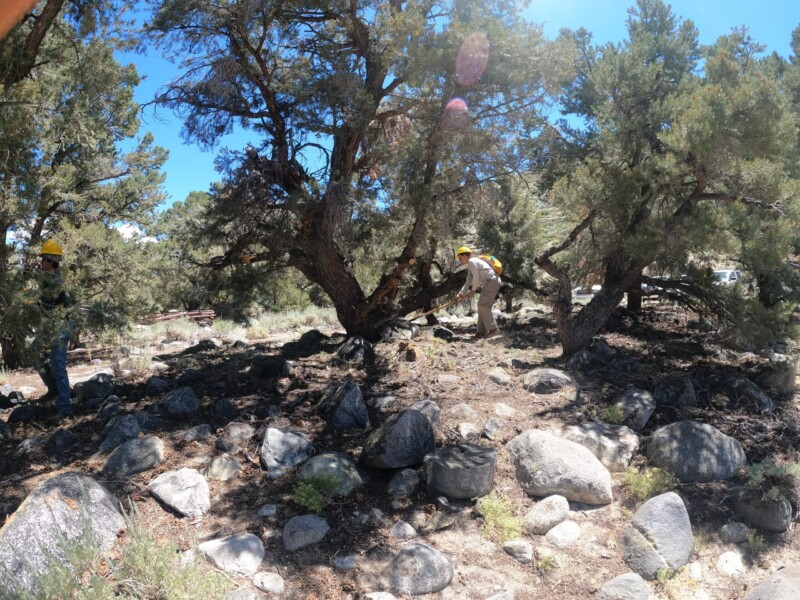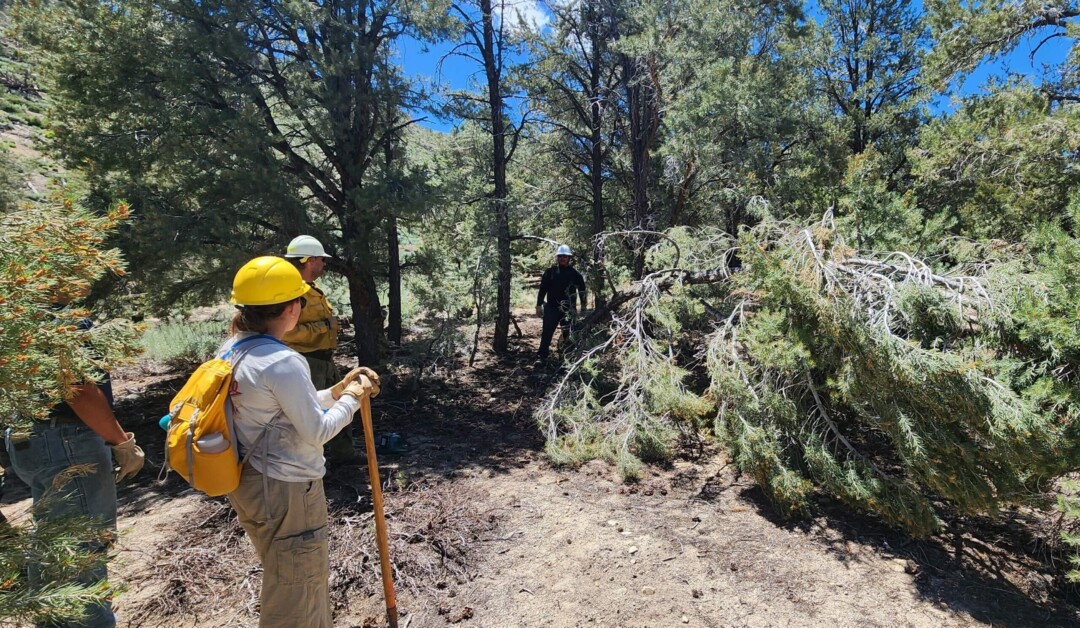Sierra Nevada AmeriCorps Partnership (SNAP) member Maggie Flaherty is working with the Bishop Paiute Tribe as their Conservation Open Space (COSA) Education Coordinator. Maggie works with the Bishop Paiute Tribe Environmental Management Office (EMO) to assist the Natural Resource Program on selected wetland habitat restoration projects, coordinate and develop educational activities, and organize and participate in a series of selected community environmental outreach events.
On August 2, Maggie helped organize a Pinyon cleaning workday at Holiday Campground, located in Mono County on lands of the Inyo National Forest. This workday was part of an ongoing collaboration between the Bishop Paiute Tribe and the US Forest Service to care for Pinyon-Juniper woodlands. Pinyons are culturally significant trees that are an important food source for Paiute peoples.

Maggie Flaherty waits to remove duff from beneath a Pinyon while Chance Traub cuts dead branches and Thomas Gustie hauls them off.During this workday, staff from the Bishop Paiute Tribe Environmental Management Office shared with Forest Service staff how Paiute people traditionally cleaned and cared for Pinyon trees to facilitate pine nut gathering. Participants learned that these cleaning methods are aligned with the goals of the Forest Service best management practices for doing fuels reduction work in Pinyon-Juniper woodland.
After sharing methods, BPT staff, including Maggie and Forest Service staff, proceeded to clean around Pinyon trees in the Holiday campground. This involved cutting dead branches from Pinyon and piling them into burn piles. More cleaning workdays are planned for this summer, and they hope to reduce fuels significantly around the Holiday Campground as well as to facilitate future bountiful pine nut collections.
Maggie helped coordinate with Inyo National Forest staff and BPT’s Natural Resources staff to organize the workday, as well as participated in the cleaning herself. The larger project is a long-term ongoing collaboration between the Tribe and Forest Service driven largely by the work of Thomas Gustie, Natural Resource Program Coordinator for the Bishop Paiute Tribe. Chance Traub and Jennifer Martin, Fire Management Specialists for Inyo National Forest, were the representatives from USFS that worked to set up this workday and discuss common protocols for cleaning.

This workday and the overall collaboration between the USFS and the Bishop Paiute Tribe are great examples of how environmental work can align with cultural preservation. Pinyons, and, more specifically, pine nut collection, are incredibly important to Paiute culture. By cleaning Pinyon, tree health is improved, reducing the risk of catastrophic fire and helping to create a woodland that will support pine nut gathering. In this case, traditional ecological knowledge (TEK) techniques to clean Pinyons and to facilitate pine nut collection align with Western fuel reduction best practices. Using TEK to steward Pinyon-Juniper woodlands, BPT staff are doing much-needed fire resiliency work as well as cultural preservation, both important goals of the Tribe and EMO.
There are many Tribes who have lived in and near the Sierra since time immemorial and continue to be stewards of the land to this day. Protecting and preserving the health of the Sierra is an essential part of preserving and protecting the culture and history of these Tribes. By ensuring that Sierra ecosystems and Indigenous cultures flourish, we preserve a social-ecological landscape that is unique, awe-inspiring, and important to countless people.


